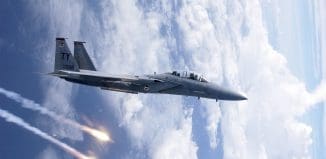How do you make sure a UAV complies with the Scandinavian market?
This post is also available in:  עברית (Hebrew)
עברית (Hebrew)

Winning an international bid to supply unmanned aerial vehicles (UAV) is quite a feather in any company’s cap. Each country has its own set of binding regulations, rules and guidelines. Beyond international aviation regulations, a unique form of adaptation and “localization” is required ahead of the rules and requirements which are inextricable from any bid.
One of Israel’s leading UAV manufacturers was in the final stages of winning a major bid issued by a government body in a certain Scandinavian nation. The bid was for supplying a variety of UAVs – so it called for a series of specific compliance tests as well as unique changes in the overall specifications, so that the company could be awarded the contract.
As this was an international bid, it was only obvious that some of the tests of various electronic circuitry of this Israeli-made system would be carried out by certified labs, on behalf of local or US certification and compliance labs.
At this point, Israeli company ITL came onboard, and ‘mediated between the Israeli company and the European client in order to assist in the testing process and redefine some of the tests according to the bud issuer, as well as carry out a series of tests of multiple electric and electronic parts of the UAV.
The issue of UAV safety, as well as the compliance of its systems and continuous operation are obviously mandatory. Without certification and assurance of these aspects, no entity (let alone a government body) could acquire a UAV – and no civil or military aviation authority would clear it for flying, or for any use.
What are these so-called UAV electric and electronic tests which ITL carries out?
– Safety: the UAV’s electric system, wiring, connectors and energy supply. All these must comply with the most stringent standards, undergo a series of comprehensive tests and receive certification by an impartial, professional authorized lab.
Register to iHLS Israel Homeland Security
– Electro-magnetic disruptions: since a UAV can be sent out to missions involving flight in areas with unregulated electromagnetic radiation, which could disrupt many of its components and cause them to malfunction, the compliance of each part must be verified. This was carried out at the ITL labs in order to guarantee the UAV will continue to operate even in the most extreme environments and conditions.
– Electrostatic discharge: as the UAV is being charge on the fly (or could be hit by lightning), a series of tests are called for – in order to ensure electric discharge in a way that would not disrupt its ongoing activity.
ITL was established in 1992, and is headquartered at the TELRAD compound at Lod. The company has been serving as an international compliance lab, whose certificates are recognized in over 60 countries worldwide – thereby saving its local clients having to bear the cost and burden of sending parts and or components to labs overseas ahead of securing certifications and authorizations in various fields and sectors (medicine, aviation, etc.).
ITA has been certified by Israel’s Standards Institute to provide certification and compliance permits to a variety of products in specific fields as well as to authorize components and systems on behalf of leading labs worldwide, with whom ITL has close collaborations. Among ITL’s major clients in Israel: major HLS companies (IAI, Elbit), manufacturers of medical devices, communications equipment and so on.






























